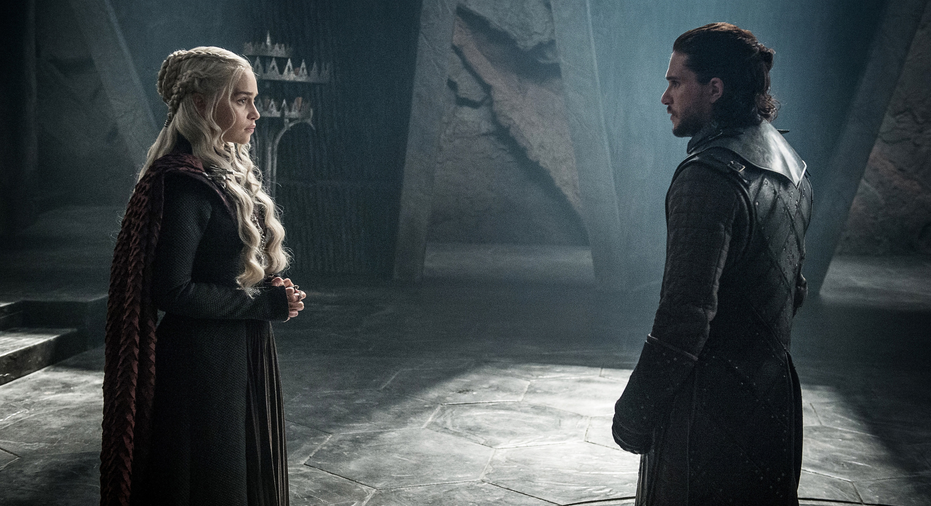Game of Thrones: Doesn't anyone here want to make any money?

WASHINGTON – The Iron Bank on "Game of Thrones" could make a lot of money hoarding dragonglass. And Samwell Tarly is sitting on a potential goldmine with his breakthrough cure for greyscale.
Most fans of the HBO hit series were enthralled on Sunday to see "Mother of Dragons" Daenerys Targaryen finally meet the resurrected Jon Snow. But as economics writers for The Associated Press, we mostly saw missed opportunities. Doesn't anyone on this show want to make a bundle?
We discuss the Iron Bank's investment strategies and Littlefinger's long-game plotting on our weekly audio show, "The Wealth of Westeros." Stream it here.
On Sunday's episode, the fearsome Iron Bank of Braavos doubled down on its so-far money-losing commitment to the Lannister family, whose main asset is exhausted gold mines.
Yet much better investment opportunities abound: They could quietly purchase mining rights to the ground beneath the majestic Dragonstone castle, which is packed with dragonglass. The obsidian-like material can kill the marauding white walkers and their zombie army gathering in the North.
And a modern bank would also provide opportunities for master-trainee Tarly, a long-time fan favorite, to monetize his medical breakthrough. Greyscale is a painful, gruesome disease that typically has no cure. But Tarly has dug one up from obscure medical texts and cured Ser Jorah Mormont.
The bank's focus on low-growth lending — to governments and slave traders — epitomizes the forces that have kept Westeros economically and technologically stagnant. There is no infrastructure to support new or expanding businesses.
Still, the Iron Bank's representative, Tycho Nestoris, did take one position that made sense: His reluctance to back Daenerys over Cersei Lannister. The bank has earned its intimidating reputation by financing rebellions against monarchs who are unable to repay their debts.
But for all its quiet power, the bank is in a tough spot. Cersei's position doesn't look great on paper — she is facing an army with three huge dragons. But the alternatives of Jon Snow and Daenerys aren't so hot either. Snow does not really care about the Iron Throne, and Daenerys may not want to pay back the crown's debts.
"Who's your alternative?" asks Evan Burfield, CEO of startup incubator and venture capital firm 1776, an avid Game of Thrones fan and the guest on this week's audio show. "They're going to have to double down on Cersei, because even though she's a bad bet, she's kind of the only play they have to get their core capital back."
And as Cersei notes, Daenerys is a "revolutionary" who wants to upend the existing order.
"In your experience, how do bankers usually fare with revolutionaries?" Cersei asks.
Historically, not very well. There is even a modern economic concept of "odious debt," a term that describes borrowing by dictatorships or colonial governments that successive governments, particularly more democratic ones, try to disavow.
An early example was the aftermath of the Spanish-American War, when the U.S. government, having won temporary control of Cuba, argued that Cuba should not have to pay debts incurred by its Spanish colonial rulers.
If Daenerys ultimately takes the Iron Throne, the Iron Bank could need a bailout.
___
Follow Chris Rugaber on Twitter at http://Twitter.com/ChrisRugaber
Follow Josh Boak on Twitter at http://Twitter.com/JoshBoak
Follow Paul Wiseman on Twitter at http://Twitter.com/PaulWisemanAP
___
Listen to the "Wealth of Westeros" audio series: https://soundcloud.com/user-186673023/sets/wealth-of-westeros-the-economy



















